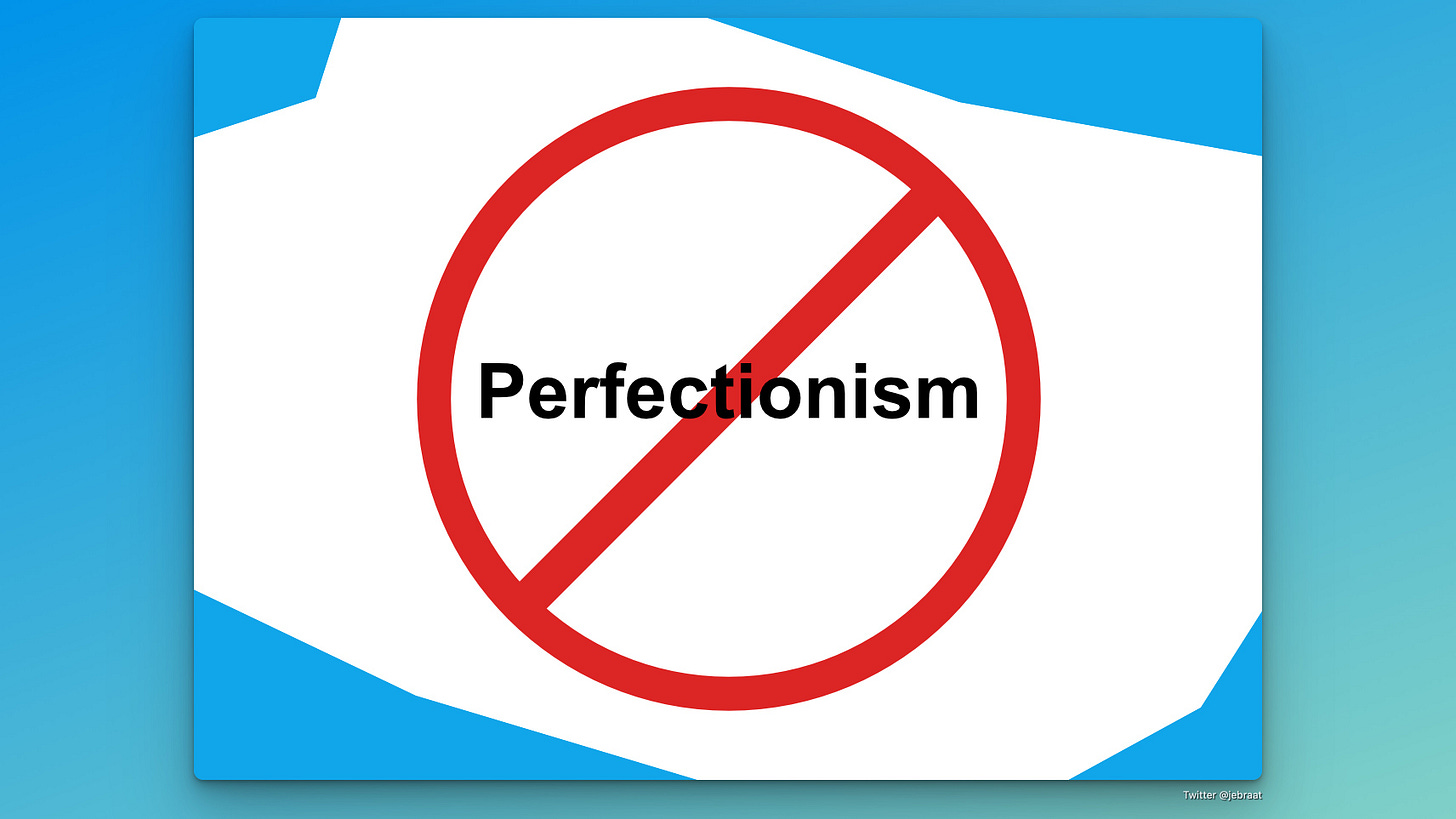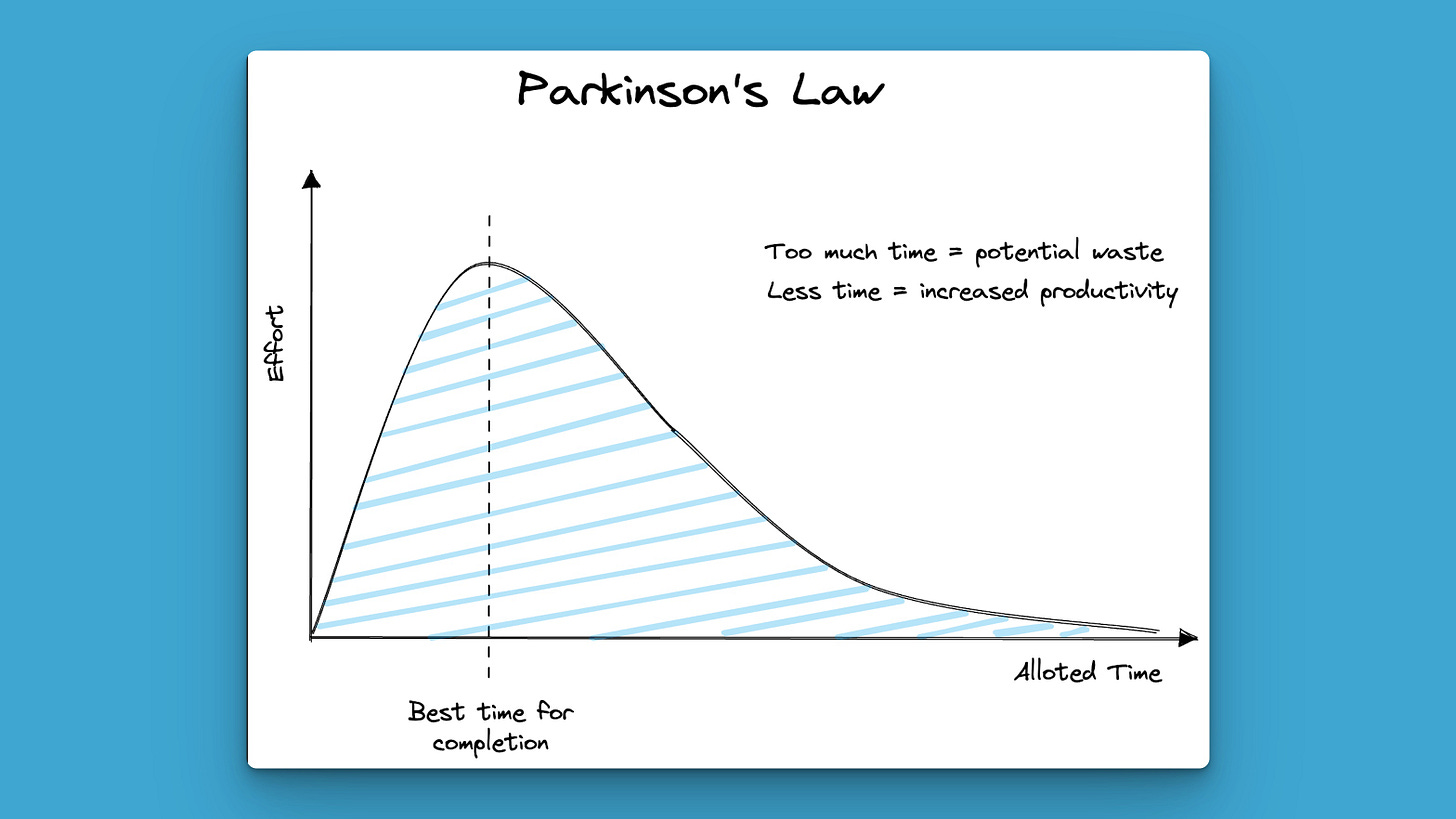TII #007: How Perfectionism Kills Your Indie Business and What You Can Do About It
As an Indiepreneur, I learned that perfectionism can kill your business. Here is my 4 step plan to deal with perfectionism and make things happen.
Reading time: 2.5 minutes
A big thank you to our sponsors who keep this newsletter free to the reader:
Today's issue is sponsored by Testimonial.to. Get more testimonials from happy customers and use them to promote your business, with Testimonial.to.
And by Supatabs. Save up to 95% RAM and remove tab clutter with this Google Chrome extension. Add it to your browser for free now: Supatabs.
When building building a SaaS business over-planning and over-engineering stifles your progress. Learn how to battle your perfectionism.
Since I can remember I have been someone trying to “make things perfect”.
Two main reasons cause this:
I’m super competitive. I like to see myself and my products constantly improve in comparison to others.
A fear of rejection. Nobody likes to be told they, or their products are bad, right?
A healthy dose of perfectionism isn’t a bad thing.
Self-oriented perfectionism often comes with some positives such as:
A high level of ambition
Increased motivation
Increased level of perseverance
Could lead to world-class performance (e.g.: top athletes)
Great attention to detail
Striving to become the best version of oneself
However, there is a catch.
When you start pushing launch dates, or keep on implementational details already “finished” in favor of equally important work, such as marketing, is when perfectionism becomes a problem.
Over the years, I have reflected on this behavior to find a solution.
Here is my four step system to keep my perfectionism in check.
1) Set deadlines and prioritize tasks
Whether you are building a business, a side project or are learning a new skill, set yourself reasonable deadlines and prioritize your subtasks.
This is where Parkinson’s law comes in handy.
The amount of work expands to fill the time available for its completion.
In layman’s terms: when you give yourself 3 days to finish a certain task, it will take 3 days to complete it.
Another way to think about it:
If you wait until the last minute, it only takes a minute to do.
→ Tighter, but reasonable deadlines will help you to get more done
2) Find the minimal viable means of delivering a meaningful experience to the customer
Train yourself to find and build the absolute minimum viable product (MVP).
Once you have it, show it to the customer/stakeholder.
Don't "optimize" without feedback.
Often times, the first implementation isn't quite what they want regardless of how "optimal" it is in your eyes.
→ Find and build the MVP
→ Iterate on the MVP after collecting stakeholder feedback
This will save you a ton of time by building what actually needs to be built.
3) Avoid second-guessing yourself
Could this have been done better?
Is this the right set of tools I'm using?
Maybe I should have done this other thing instead.
This is something I have struggled with in the past.
As I’m on a path of constant improvement, I learn something new while building pretty much every time.
It is tempting to go back to what you have already built and improve it with the new knowledge you have gained.
This is a common trap.
With this approach, you get stuck in a constant cycle of “this is not done, because ….”.
Don't assume there is a "right" solution. Every solution comes with tradeoffs.
→ Don't get stuck in the planning trap
→ Don't get stuck in the optimization trap
4) Stop treating digital products like conventional ones
Digital products can be changed virtually at any time.
Fixing a bug and pushing the fix to one million people at the same time? Easy.
Adding features? Common.
Digital products are fundamentally different from analog products. E.g. printed books.
Cut yourself some slack. It doesn't need to be perfect on the first release.
→ Treat digital products like ever-changing drafts and iterate AFTER getting customer/stakeholder feedback
Conclusion
Perfectionism is common trap a many Indiepreneurs get caught in.
You can keep your perfectionist tendencies in check by
Setting deadlines and prioritizing tasks
Building and iterating an MVP
Not second-guessing yourself (there hardly ever is a "perfect" solution)
Treat digital products as changeable
A dose of perfectionism isn't a bad thing.
Strive to improve, but don't get caught up in optimizing.
I hope this article was helpful!
Cheers






